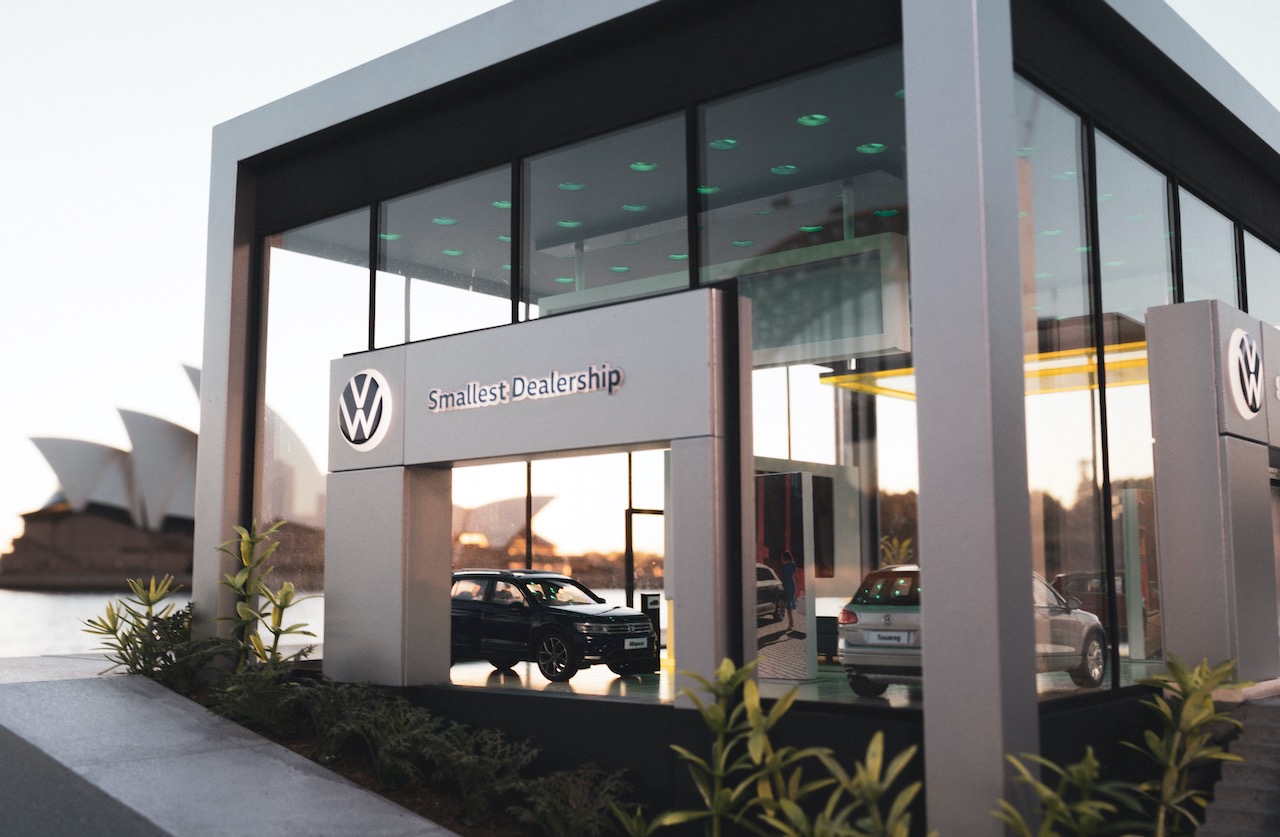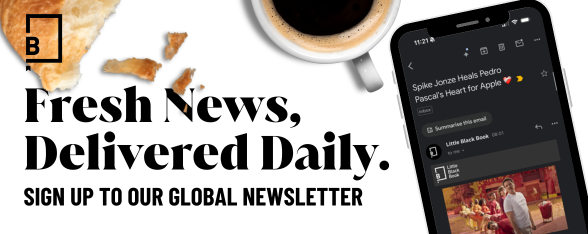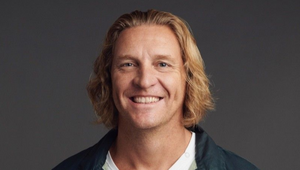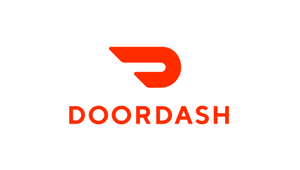
DDB ANZ’s CEO: “We’re Coming to the Age Where Connection Is More Powerful than a Click”

“We’ve taken to it like a duck to water,” are Andrew Little’s opening words as he contemplates how the focus on ‘Unexpected Works’ has impacted the New Zealand and Australian offerings of DDB which he heads up. An agency such as DDB is synonymous with creating boundary-breaking work and in the ANZ region even more so. Just look at DDB’s now global CEO, Marty O’Halloran who was at the helm of Australia and New Zealand’s offices before his recent promotion. Andrew seamlessly stepped into his shoes, using 22 years of experience with the agency – and a few more at others – to pivot and work through how he’s taking things forward.
“When you work for DDB, you've got this wonderful heritage of Bill Bernbach and so many amazing people that have come before us. In this agency group our history is really important. But equally, it's a really ambitious statement about where we're going as a brand and into the future as well,” says Andrew. In ANZ the brand goes so much further than just DDB, there is also digital agency Tribal, PR agency Mango, CRM agency Track, design agency Interbrand and DDB Remedy to name but a few.
It isn’t just Bill Bernbach’s heritage that has made DDB what it is. It’s also Marty O’Halloran’s and as Andrew says: “One thing he is excellent at is galvanising people.” He adds: “I think there's a reason why Marty's been promoted. He's run this part of the world brilliantly for about 20 years and we've got the classic three agencies being in Sydney, Melbourne and Auckland, but both New Zealand and Australia are highly regarded within the DDB world.”
Andrew jokes that while both country’s agencies are ‘very good friends’ with each other, they’ve also got a ‘wonderful’ competitiveness between them both. “I think we in Australia look to New Zealand and think that's an incredible country and look at how creative they are, but it takes all of that - the client, the agency and the people to be able to generate that.” Previously, he found that New Zealand was perceived as being the most creative of the two countries, but that is ‘changing over time’. While he doesn’t see any large differences between the two nations in terms of creativity, he does want to focus closely on snapping up any big opportunities that come along to celebrate just how well both can do.
He goes on to praise the New Zealand offices for holding eight agency of the year titles (“something ludicrous like that”) and Sydney and Melbourne have also had their fair share of accolades too. “I think one thing that marks this part of the world is just the consistency with culture, with people and with client relationships.”
Many of the client relationships are extremely long standing, from a partnership with Johnson&Johnson that has spanned 25 years, Westpac’s 10 and two decades with Volkswagen. The most impressive however, is the 50 years that DDB Australia have spent working with McDonald’s which Andrew believes is where the agency has produced its ‘best and most successful work’. “Some of the best work for McDonald's can start with a PR idea, you can build something amazing into culture. Something like renaming all of the McDonald's arches to Maccas.”
Though, having such long-standing clients has left Andrew pondering his own legacy: “It gives you a really interesting perspective around leadership, because what you're thinking about is ‘Oh hang on a minute, I've been here for 20 years, what's my legacy going to be moving forward and what legacy am I going to hand over to the next generation?’.”
Those long-standing client partnerships have produced plenty of iconic bits of work and one example that Andrew is particularly proud of is DDB’s work with Volkswagen. Last month DDB Sydney confronted driving fears with a campaign designed to emulate horror movie posters. The film-style posters highlighted anxiety linked to parallel parking, roundabouts and merging onto the highway in an engaging way.

This isn’t the extent of the innovative work for Volkswagen, last year when Covid and lockdown hit Australia, the team created the ‘World’s Smallest Dealership’. The 28cm tall activation was an exact 3D replica of a real dealership, even featuring screens running Volkswagen TV ads, and was fitted with QR codes for customers to scan with their phones, leading them to a dedicated website designed for virtual tours using augmented reality. Andrew recalls the e-commerce platform for Volkswagen being built in just six weeks, something unheard of for a large dealership.
During this period and post-lockdown, the creative world has learnt a lot about the relationship between brand and consumer. For Andrew, the realisation that the way people are interacting with brands is changing has been clear, but he finds that the way people think about brands is not. “I think the world is too obsessed with what's changing and not obsessed enough with what's not. The need for emotion, regardless of the medium, is absolutely necessary and what's really important in terms of the digital world is emotional context. Rather than just obsessing about the channel and the opportunities within the channel, obsess about how to emotionalise that channel and create a connection with people.”

He looks back over advertising through the decades and believes that the ‘50s and ‘60s was a period of ‘pure revolution’. This revolution was further intensified in the 2000s, which Andrew believes came from ‘all of these wonderful tools at our disposal to execute advertising.’ However, the flip side of this is that he has found in recent times that the creative world is more focussed on using these tools, not creativity.
“What I feel like we're doing now is coming into the age of the revelation, where a connection is way more powerful than a click. What we're seeing is that clients are coming back to us and saying, ‘I need to transform my business in a certain way’, for us, it's just super exciting. We had our best new business year in Australia in a decade last year, in the middle of Covid. I am so excited about the future of our industry.”
Though this future has at times been uncertain due to the Covid-19 pandemic, Andrew is determined to take inspiration from times in history where there have been disasters that have been followed by heightened creative phases. “The sheer joy of human beings thinking that they've got this more under control just generates so much positivity and creativity. We're certainly seeing businesses really rebounding economically and this real desire to make a difference with creativity. In short, Unexpected Works is really great for us and we're right behind it.”
As a leader at the helm of a large agency, keeping staff upbeat during testing times was never going to be an easy task especially for an agency that prides itself on the tenure of its staff. Andrew’s tactic was to over communicate and try to keep changes as seamless as possible for his staff. This included mental health support, help for those who lived alone and being understanding to those with children.
As someone who’s grown up watching his father run a building company, Andrew was taught about the importance of communicating at an early stage. His summers were spent working on construction sites and at times his job was as tedious as pressing buttons on a driving lift all day. But it was this that he believes gave him his strong work ethic.
When it came to studying, his father was keen for Andrew to do a commerce or accounting degree. He pursued the former for a year before realising that the marketing module was the one that really piqued his interest. “Before I knew what was happening, I found myself at a great Australian agency at 21 years of age, convincing the managing director of Mojo advertising - at the time, a very famous Australian agency - that I'm the person for them.” It worked and shortly after he found himself at DDB where he’s spent 22 years.
“I worked really, really hard. I was always the first in and the last to leave. When my work was done, I'd always jump up and say to someone ,‘can I help?’ and I think that's really helped me craft the right kind of culture for us.” Andrew is eager to ensure that juniors joining the agency now also follow these footsteps and advises them to always offer to help others when their work is done. “Whenever I talk to one of them, I just say to them, be yourself. Diversity and inclusion is just so important to us. We have this philosophy of being talented and nice. You've got to be both; you can't be one or the other. It's just a wonderful thing and I think that's inherent to DDB offices around the world.”
Diversity and inclusion is a growing conversation across the globe and at DDB Australia and New Zealand the way this is implemented is starting to take shape. The teams have had female leadership for a while now, including the recent promotion of Priya Patel as CEO of DDB New Zealand as well as a host of female creatives, but for Andrew it is of course about more than gender. “It's about diverse backgrounds. It's just incredible for young kids who are coming in and it's something that we're going to continue to focus on because it generates such wonderful creativity as a result.” For Andrew it goes down to one philosophy: “employing people much better than myself.”
As there begin to be pockets of certainty within the world and the digital markets become more relevant than ever, Andrew believes now is the time for DDB to utilise its partnerships with the likes of TikTok and Facebook in new and different ways. For him the advice is simple: “You've got to understand how customers are using those platforms and what they're watching and what they're engaging with. If you can understand that and what is driving that human behaviour and what's engaging, then you can use that to your benefit with brands.”
With so many changes happening and a whole Unexpected Works themed future to look forward to, Andrew’s plans remain pretty simple. Firstly, he knows he has big shoes to fill in following Marty. But, his priority is his team and making sure they’re ‘the happiest they can be’. “We will continue to find unexpected ways to bring our brands closer to customers and we want to continue to be regarded - both in the DDB world but more importantly on the global stage - as two of the best agency countries in the world.” If he can manage to do just that for the Australian and New Zealand offices, then ‘the sky’s the limit’.















